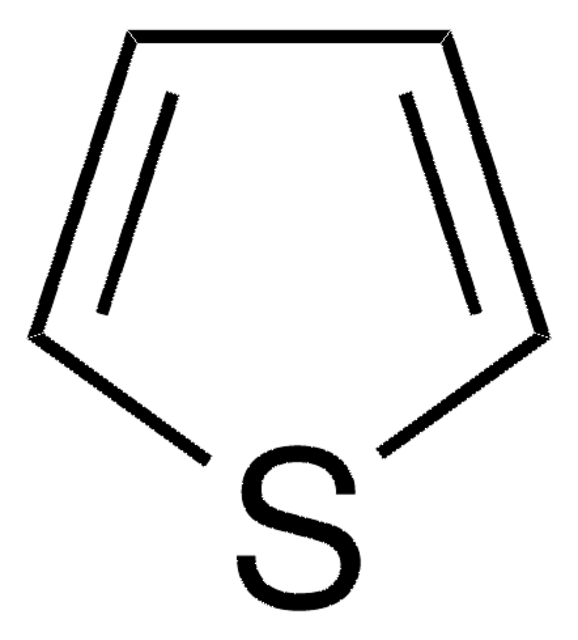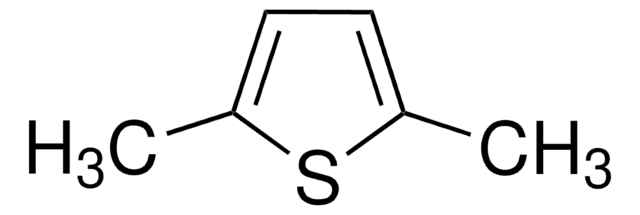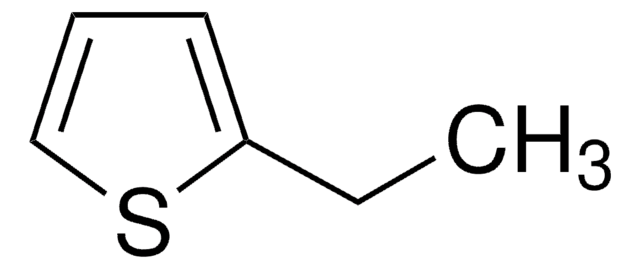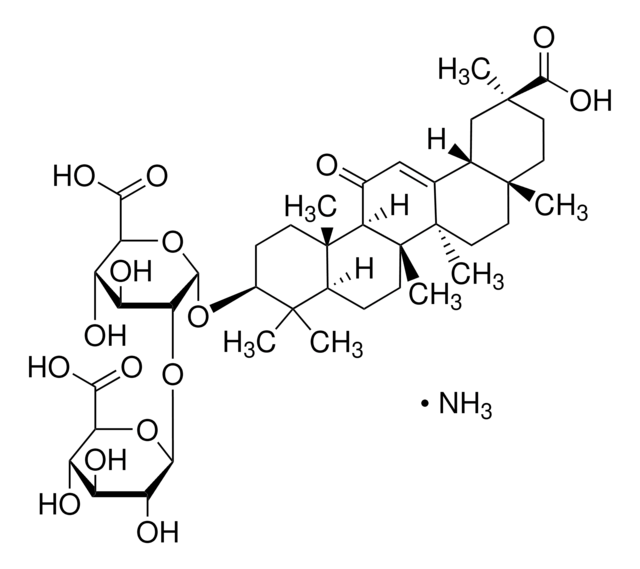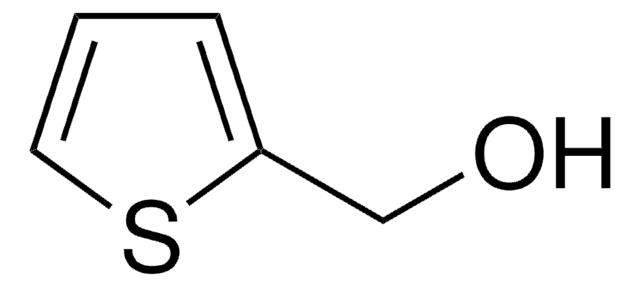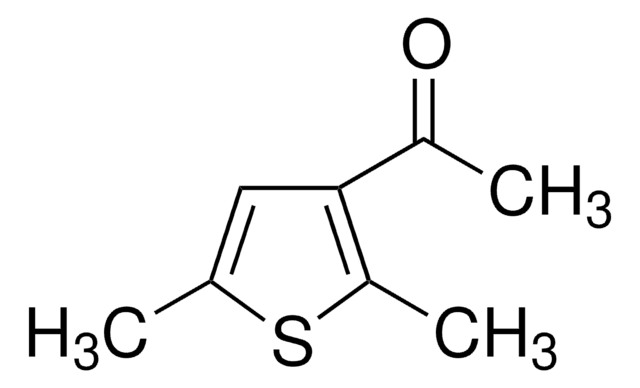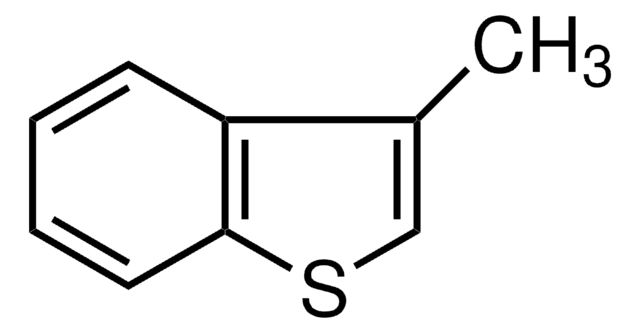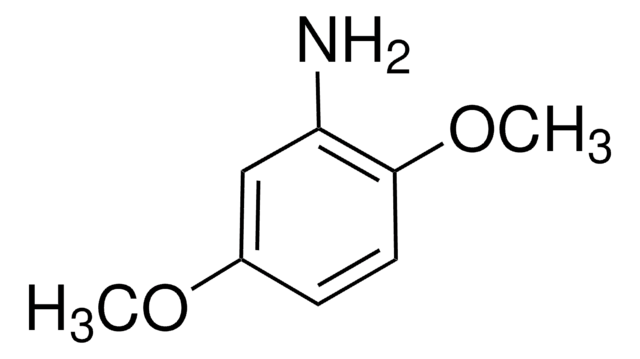M84402
3-Methylthiophene
98%
Synonym(s):
β-Methylthiophene, 3-Thienylmethane, 3-Thiotolene
Sign Into View Organizational & Contract Pricing
All Photos(1)
About This Item
Empirical Formula (Hill Notation):
C5H6S
CAS Number:
Molecular Weight:
98.17
Beilstein:
1300
EC Number:
MDL number:
UNSPSC Code:
12352100
PubChem Substance ID:
NACRES:
NA.22
Recommended Products
vapor pressure
42.4 mmHg ( 37.7 °C)
Assay
98%
form
liquid
refractive index
n20/D 1.519 (lit.)
bp
114 °C/738 mmHg (lit.)
mp
−69 °C (lit.)
density
1.016 g/mL at 25 °C (lit.)
SMILES string
Cc1ccsc1
InChI
1S/C5H6S/c1-5-2-3-6-4-5/h2-4H,1H3
InChI key
QENGPZGAWFQWCZ-UHFFFAOYSA-N
Looking for similar products? Visit Product Comparison Guide
Application
Conducting polymer precursor.
Signal Word
Danger
Hazard Statements
Precautionary Statements
Hazard Classifications
Flam. Liq. 2
Storage Class Code
3 - Flammable liquids
WGK
WGK 3
Flash Point(F)
51.8 °F - closed cup
Flash Point(C)
11 °C - closed cup
Personal Protective Equipment
dust mask type N95 (US), Eyeshields, Gloves
Choose from one of the most recent versions:
Already Own This Product?
Find documentation for the products that you have recently purchased in the Document Library.
Customers Also Viewed
Linlin Li et al.
Materials science & engineering. C, Materials for biological applications, 53, 36-42 (2015-06-05)
A polymer film incorporated gold nanoparticle modified electrode was fabricated. The fabricated process involved eletrodeposition of gold nanoparticles and electropolymerization of the 3-methylthiophene (abbreviated 3MT) onto the glassy carbon electrode (GCE). The resulting electrode (P3MT-nano-Au/GCE) was characterized by scanning electron
Nannan Jian et al.
Physical chemistry chemical physics : PCCP, 21(13), 7174-7182 (2019-03-20)
Conjugated fluorophores have been extensively used for fluorescence sensing of various substances in the field of life processes and environmental science, due to their noninvasiveness, sensitivity, simplicity and rapidity. Most existing conjugated fluorophores exhibit excellent light-emitting performance in dilute solutions
Journal of the American Chemical Society, 117, 233-233 (1995)
Our team of scientists has experience in all areas of research including Life Science, Material Science, Chemical Synthesis, Chromatography, Analytical and many others.
Contact Technical Service
